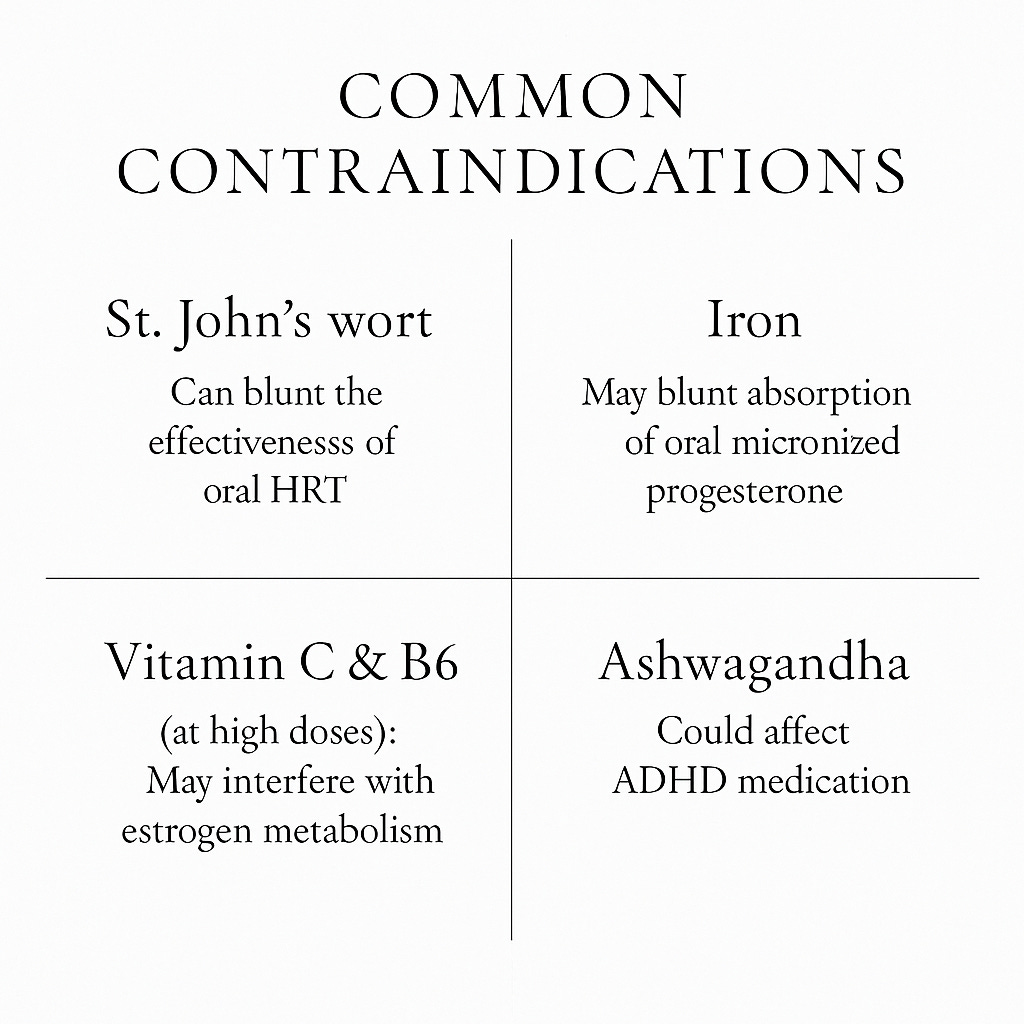88% of AI researchers are male. Who is building female intelligence?
LLMs built without existing datasets on or experience of women's health. What could possibly go wrong?
What we’re examining this week:
What the lack of women in AI means for femtech.
From the Lab to your Life: Testosterone and Women (Part 1).
What would an AI Agent for your Health help with?
Rx and supplement can cause contraindications.
1. 🦾 AI research lacks two things: women and data
Everybody is building the future of women’s health (especially companies in stealth). But the present is here and it is being shaped predominantly by male researchers.
The shortage of female researchers is harming the female health sector, which will either continue to limp behind industries where data is abundantly available or rely on people without the physiology or experience to design products for billions of us.
With so few women in senior roles, the design and training of algorithms often overlook key aspects of female physiology, behavior, and health priorities. The result?
Embedded gender biases, reinforced data blind spots, and the potential for data misuses, motivated by the wrong incentives.
Only 1% of healthcare research investment (beyond cancer) goes into female-specific conditions.
Only 6% of sports science research focuses exclusively on women.
Code repositories involving gender-diverse teams have better code quality, yet women make up only about 10–22% of contributors in open-source AI development.
44% of AI systems across all sectors exhibit gender bias.
Amazon’s AI hiring tool was scrapped after it was discovered to downgrade résumés containing the word “women’s.
In 2019, Apple’s credit card AI was found to offer women up to 20x lower credit limits than men, even when they had better credit scores and income profiles.
We combat all of the above at Vitelle, where we are building health and performance by women for women with researchers and scientists who are badass females.
If you are a provider who wants to learn about how we support your organization for better retention, reach out. If you are a woman who wants her doctor to support her even better at home - using all her available data - let us know.
2. 💊 Let’s talk about female testosterone:
Testosterone in women plays a crucial role in libido, mood, muscle mass, bone density, and overall vitality. While men have much higher baseline levels, women also produce testosterone - primarily from the ovaries and adrenal glands - and levels gradually decline from their 20s, with a sharper drop post menopause.
I will write an extensive Part 2: further researched and co-produced with a scientist. In the meantime I want to leave you with…
Some stats:
The goal of prescribing testosterone should be to get the same level of testosterone she would have had in her premenopausal years. More is not better.
Women are prescribed 1/10th of the dose for men in pellet, gel or cream form.
Compounding pharmacies can dose more individually but aren’t FDA-approved and can be inconsistent. In one study, products contained more than 20% of the prescribed dose, while others had essentially no testosterone.
Taking testosterone can cause acne, balding, deepening of the voice and hot flashes (some of it associated with short term use only).
This isn’t a pro or cons list of testosterone for women. It is as always for women to make informed decisions and ask questions. And remember that we have no conclusive or longterm research on the negative or positive effect on the female physiology, yet. If it resolves your symptoms and improves your lifestyle without creating additional issues, make your decision. And like with all Rx, keep in mind some of the contraindications we listed below.
3. 👩🏽⚕️ How could AI Agents help us with Longevity?
For many women, longevity isn't just about living longer, it’s about navigating the daily mental Olympics of health decisions: Is this supplement actually working? Is my HRT doing what it should? Can I push through this workout or should I rest? AI agents, when designed specifically for female physiology, could act like a smart, unflappable sidekick, quietly tracking patterns, flagging what matters, and helping you course-correct before problems snowball. Instead of guessing whether your rising resting heart rate is stress, sleep debt, or hormone shifts, your AI could spot the trend and gently suggest: today’s actually the day hit the snooze button, unapologetically.
What makes this really powerful is that it unburdens women from having to be their own case manager. With everything from glucose, to muscle mass, to mental clarity changing across a menstrual cycle (or disappearing post-menopause), AI can phase-match your routines to your biology. It can remind you that your iron supplement might not play nice with your oral progesterone, or that your ADHD meds could be tweaking your hormone balance and do so without the drama of a Garmin watch alert that tells you you are lazy.
Most importantly, a well-trained AI agent can help women stay ahead of long-term risks without constant stress. By automating check-ins, interpreting biomarker shifts, and offering just-in-time nudges, it gives women space to focus on living, not just managing everybody else’s “stuff”.
Sound too good to be true? We’re not there yet and have no datasets to make it foolproof but it’s clear we need a platform that offers the foundation of this, that plugs into your existing provider… and we’ve built it.
4. 😲 Rx and Supplement Contraindications
Growing up we typically had one pharmacy to fill prescriptions and the staff would know what we were taking. Supplements may have been limited to multivitamins and prenatals. Now, in the golden era of peptides and everything being readily available online, no one provider is overseeing the whole extent of what women are on. We see this at Vitelle where the cocktail of Rx and supplements is extensive and the individual woman ends up being her own formulator and overseer.
That is empowering and ideally tied to better wellbeing and improved symptoms. But it isn’t always that simple. Below I posted just four contraindications to be aware of when getting a new Rx or buying a new supplement. Make sure to discuss them with all the providers you use and get their guidance. This is a topic we will have some analytics on, soon!
Stay tuned for next time:
Part 2 of Testosterone for Women
Protocol Spotlight: autoimmune diseases and longevity.
Ask Roma & Team– We answer more of your questions.
Hit subscribe and stay tuned for the next newsletter in two weeks.
And share this with a friend who’s ready to start aging on her own terms.






